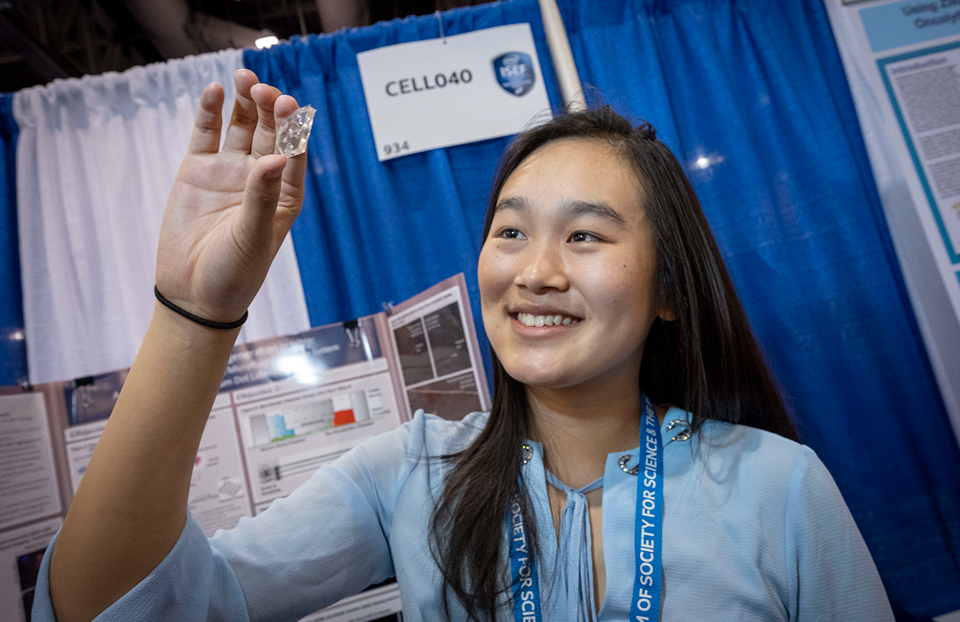Cellular and Molecular Biology
Code: CELL
Sponsored by Regeneron

First to Fourth Place Awards will be given in the category of Cellular and Molecular Biology, sponsored by Regeneron.
“Regeneron is committed to helping engage and inspire the next generation of scientific innovators, as we believe there is nothing more important for helping address the truly existential threats facing humankind – from disease to climate change. We are thrilled to expand our collaboration with the Society for Science & the Public to now take on title sponsorship of the International Science and Engineering Fair, adding to our previous commitment with the Regeneron Science Talent Search,” said George D. Yancopoulos, M.D., Ph.D., Co-founder, President and Chief Scientific Officer of Regeneron.

Cellular and Molecular Biology
Code: CELL
This is an interdisciplinary field that studies the structure, function, intracellular pathways, and formation of cells. Studies involve understanding life and cellular processes specifically at the molecular level.
Subcategories:
Cell Physiology
Cellular Immunology
Genetics
Molecular Biology
Neurobiology
Other
Cell Physiology (PHY): The study of the cell cycle, cell function, and interactions between cells or between cells and their environment. In general, projects could address physiology of membrane transport, neuron transmission, muscle contraction, the digestion of food, circulation of blood, contraction of muscles, or movement and production of nutrients in plant cells.In general, projects could address physiology of membrane transport, neuron transmission, muscle contraction, the digestion of food, circulation of blood, contraction of muscles, or movement and production of nutrients in plant cells.
Cellular Immunology (IMM): The study of the structure and function of the immune system at the cellular level. This includes investigations of innate and acquired (adaptive) immunity, the cellular communication pathways involved in immunity, cellular recognition and interactions between antigens and antibodies.
Genetics (GEN): The study of molecular genetics focusing on the structure and function of genes at a molecular level.genes, genetic variation, and heredity in living cells. These projects explore the consequences of genome variation on human cell biology, and thus gene function in health and disease. Furthermore, projects may study the impact of naturally-occurring and engineered genome mutations in human iPS cells, their differentiated derivatives, and other cell types.
Molecular Biology (MOL): The study of biology at the molecular level. Chiefly concerns itself with understanding the interactions between the various systems of a cell, including the interrelationships of DNA, RNA and protein synthesis and learning how these interactions are regulated, such as during transcription and translation, the significance of introns and exons or coding issues.
Neurobiology (NEU) : The study of the structure and function of the nervous system at the cellular or molecular level. This area focuses on the study of cells of the nervous system and the organization of these cells into functional circuits that process information and mediate behavior. Some neurobiology focuses on the molecular structures of the brain and nervous system. Larger complete systems, like the function and structure of the cerebral cortex, may be studied. Projects can look at biological factors that impact learning or mood, or how early genetic material develops into various areas of the brain.
OTH Other (OTH): Studies that cannot be assigned to one of the above subcategories. If the project involves multiple subcategories, the principal subcategory should be chosen instead of Other.